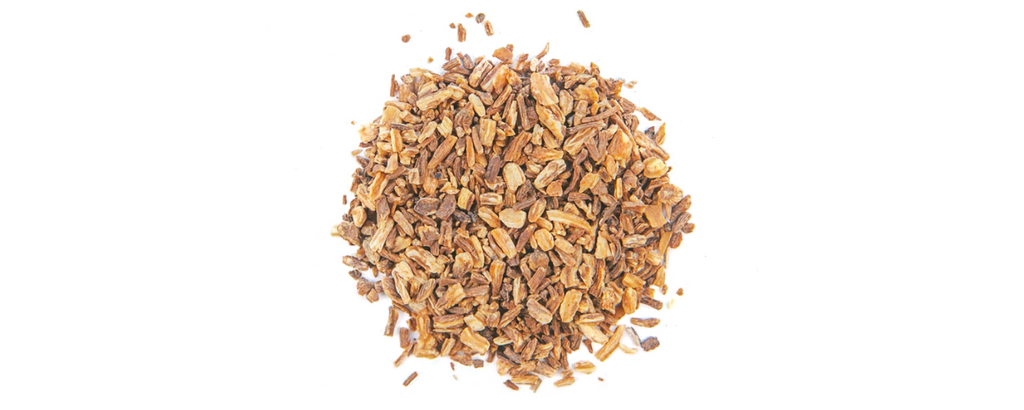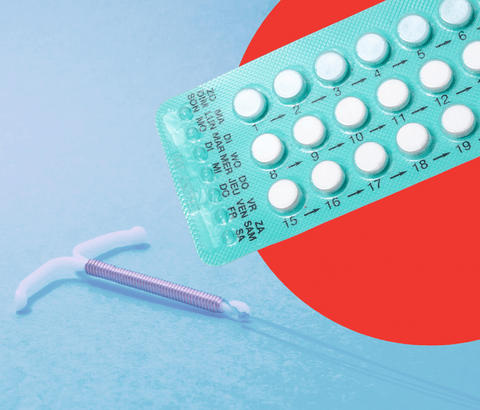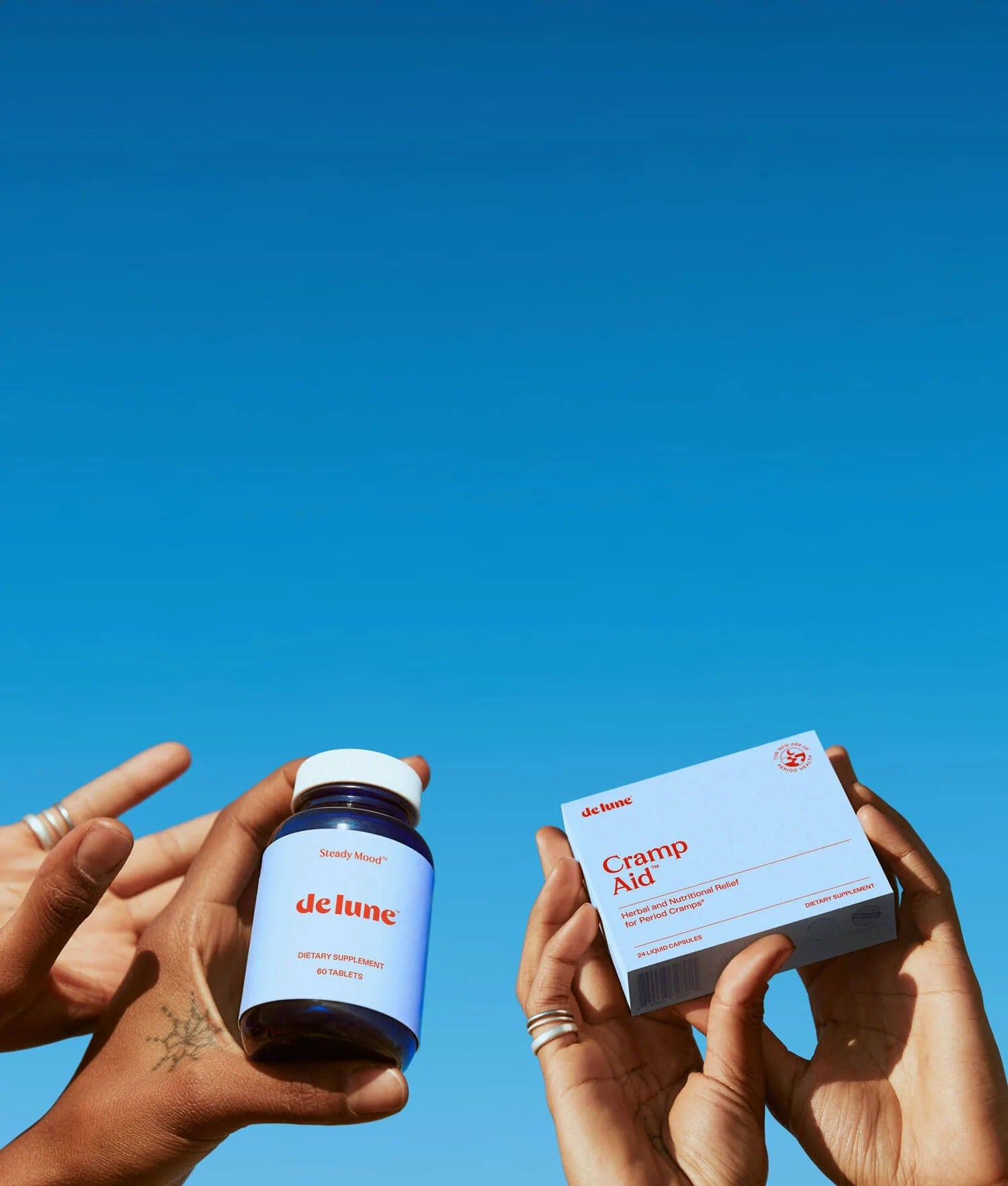What is Dysmenorrhea?
Dysmenorrhea is the clinical term for period pain. It’s a common—and often debilitating—gynecological condition that affects between 45% and 95% of menstruating people. Despite how prevalent, dysmenorrhea is often poorly treated, and even disregarded, by health professionals and pain researchers.
While many people with periods accept pain as a normal part of their cycle, periods don't have to be painful. Dysmenorrhea is treatable, and you have options for managing period pain. This article describes how herbs like dong quai offer a natural solution for reducing period cramps.
Can Herbs Help With Painful Period Symptoms?
Currently, the most common pharmacological treatment for dysmenorrhea is non-steroidal anti-inflammatory drugs (NSAIDs) like Advil, aspirin, and ibuprofen. Globally, NSAIDs are among the most frequently prescribed group of drugs.
For the most part, NSAIDs do a good job at treating dysmenorrhea. It’s estimated they relieve pain in about 80% of people with periods. While effective, NSAIDs may come with a host of well-documented side effects. These include stomach pain, constipation, diarrhea, gas, heartburn, nausea, vomiting, and dizziness, though more serious side effects are possible.
Nearly 1 in 5 people with periods feel no relief from NSAIDs. For these people, oral contraceptives (i.e. birth control pills) are often used as a second-line therapy. While the pill can also be effective at reducing period pain, it also has side effects and may cause long-term health problems.
While NSAIDs have only been around for the last 100 years or so, traditional medicines have been supporting health for centuries. The tradition is still alive; approximately 60% of the world’s population is dependent almost entirely on plants as medication for all health problems, including menstrual disorders.
Because plant compounds are known to be effective, many modern pharmaceutical drugs have an ancient herbal basis. When taken responsibly, herbs offer a natural alternative to pharmaceuticals with a lower risk of side effects.
Dong Quai History & Background
Also knows as tang-kuei, dang-gui, or Chinese angelica, dong quai a widely respected herb that’s been used throughout Asia for at least 2,000 years. It belongs to the Apiaceae family, which is closely related to parsley. It’s woody, fragrant, and grows on the mainland of China, Korea, and Japan. It has a strong scent that's somewhere between celery and licorice. It tastes bittersweet and spicy, and has a warming affect on the body.
Dong quai is said to appear more frequently in Traditional Chinese Medicine (TCM) prescriptions than any other herb. Its Chinese name, dang quei, literally means "state of return," referring to its restorative powers.
Most herbalists regard dong quai as the wonder herb for the female system. It’s a multi-purpose remedy used in TCM to treat menstrual cramps, lack of menstruation, frequent menstruation, menopausal hot flashes, and balancing female reproductive processes.
Most of the medicinal oils are found in dong quai’s roots. Contemporary Chinese theories of TCM claim that different parts of the root are responsible for different effects: the head of the root stops bleeding, the middle of the root regulates blood and alleviates pain, and the tail portion eliminates blood stasis.
Dong quai was first introduced into Western medicine in 1899. It was sold in liquid and tablet forms as a product called Eumenol, which was recommended in the treatment of menstrual disorders. Today, dong quai is regulated as a food supplement in the USA, but is classified as a medicine in Japan.
How Dong Quai Helps Alleviate Dysmenorrhea & Period Pain
To appreciate why dong quai is helpful for dysmenorrhea, it’s helpful to understand what’s going on in the uterus during menstruation.
Throughout the month, the lining of the uterus grows a thick mucous membrane to prepare for the possibility that an egg might be fertilized and nestle in. Blood vessels grow throughout the mucous membrane to nourish a potential embryo with blood and nutrients.
At the end of the cycle, if a fertilized egg hasn’t settled in, the uterus ditches its mucous membrane. The uterus’s powerful muscles rhythmically contract and relax, which detaches the membrane from the uterine wall. Some of the blood vessels in the membrane open up, which leaks blood into the uterus and produces a period.

In traditional herbal medicine, the tone of the uterine muscles matters. The uterus is a mostly-muscular organ capable of serious contractions. For the easiest menstrual flow, it’s important that the uterus be adaptable—it must relax and contract at the right moments to shed its mucous membrane in the least painful way possible.
If the uterus is hypotonic (too limp and languid), a menstruating person may experience heavy bleeding. If the uterus is hypertonic (too stiff and rigid), it may be difficult to begin menstruating on time. In either case, improving the uterine tone can help regulate menstruation.
Research shows that people with dysmenorrhea have higher levels of overall uterine activity compared to those without period pain. Resting uterine tone, intrauterine pressure, and frequency of uterine contractions are all increased in people with dysmenorrhea.
Research also shows that these strong uterine contractions are associated with lack of blood flow to the uterus. Because blood delivers oxygen, cutting off blood flow starves the uterus of the oxygen it needs to function properly, resulting in painful cramps.
Dong quai seems to help manage dysmenorrhea by regulating uterine contractions. It displays the unique ability to first stimulate the uterus, then relax it. Some uterine contractions are necessary to effectively shed the mucous membrane, and stimulating uterine tissue may help strengthens it over time. But relaxation is also important for maintaining a healthy blood flow to the uterus.
Because dong quai regulates the uterus’s muscular rhythms, it may improve the timing of the menstrual cycle. This explains why dong quai has been used for thousands of years to treat periods that come too frequently, as well as those that don’t come frequently enough.

While there are several herbs that regulate uterine tone, dong quai is one the most potent. The unique mix of volatile oils found in dong quai’s roots block the action of epinephrine and histamine—compounds that regulate muscle contraction—causing the uterus to relax. Pain researchers have concluded dong quai's pain-relieving, anti-inflammatory, and antispasmodic activities can make it a powerful period cramp soother.
Researchers also think that ferulic acid—the major organic acid in dong quai—may also lend some unique health benefits as an antioxidant and anti-inflammatory agent.
Ferulic acid is also a potent anticoagulant that improves blood flow and prevents blood clots—including the painful kind during your period. In traditional Chinese medicine, this process prevents a condition called “stagnant blood”
Find Dong Quai in Cramp Aid
Thousands of years of ancient wisdom tells us that dong quai is a safe and effective option for period pain. However, conditions like dysmenorrhea are often best treated through multiple modes of action. Relying on just one method of treatment, such as dong quai, may not be enough to eliminate period pain in some people.
We combed the science for the most effective nutrients and herbs for period pain, and included them all—including dong quai—in Cramp Aid, our natural solution to period cramps. Learn more here.

This information is for educational purposes only and is neither intended to nor implied to be a substitute for professional medical advice. These statements have not been evaluated by the Food and Drug Administration. This product is not intended to diagnose, treat, cure, or prevent any disease.







